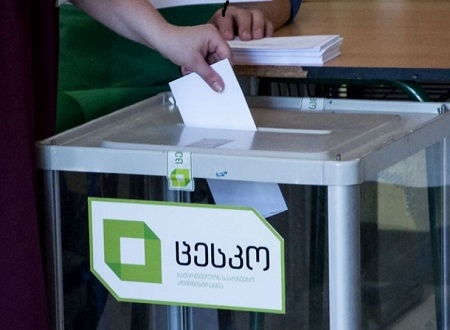Georgian PM Kvirikashvili Confirms October 8 Election Date
TBILISI - Georgian Prime Minister Giorgi Kvirikashvili confirmed on Friday that the nation’s upcoming elections would be held on October 8, but that an announcement regarding the official launch of the election campaign season remains subject to further discussions with the Central Election Commission (CEC).
"We cannot afford paying additional 7 or 8 million GEL (Upwards of USD 3.5 million) just for the purpose of counting down the days until the election. We are discussing all of the technical and financial issues with the CEC and we will make a decision on when to formally launch the campaign cycle,” Kvirikashvili said.
Georgian President Giorgi Margvelashvili set the upcoming parliamentary elections date for October 8 after convening a special briefing on Tuesday.
The timing of the announcement was met with a mixed reaction from the country’s main political parties, with some complaining that the early announcement favors the ruling Georgian Dream party.
Margvelashvili, however, defended his decision, saying that a lengthy campaigning season will benefit all of the parties who plan to take part.
Georgia’s constitution calls for parliamentary elections to be held in October, with the country’s president setting the exact date no later than two months before voters go to the polls.
Under the constitution, the Georgian Parliament’s 150 members serve four-year terms, with 77 seats set by proportional representation and 73 in single-seat constituencies.
The ruling Georgian Dream coalition currently holds a majority in the parliament with 85 seats.
Related coverage: Georgia’s President Sets Parliamentary Elections for October 8
In recent weeks, however, the Georgian Dream appears to be unraveling as a number of its coalition members have withdrawn from the party.
The Republicans, a key faction in the ruling coalition, announced on March 31 that it plans to officially withdraw from the embattled Georgian Dream and run on its own ticket in October.
The departure of the coalition’s second largest faction could complicate the ruling party’s chances at re-election in the upcoming election.
Recent polls have shown widespread discontent with the Georgian Dream due to their poor handling of the country’s faltering economy and a lack of policy cohesion amongst its disparate members.
By Tamar Svanidze
Edited by Nicholas Waller












